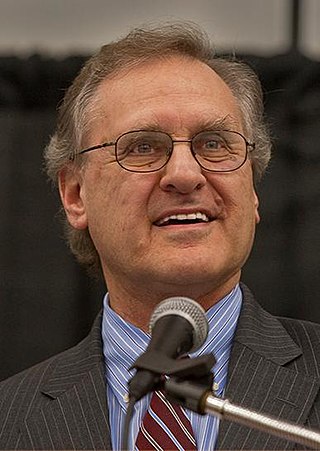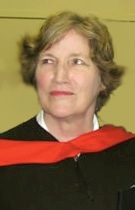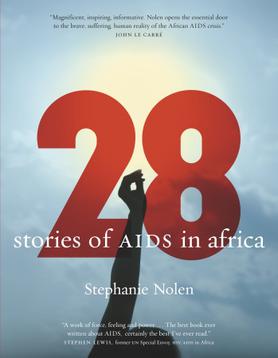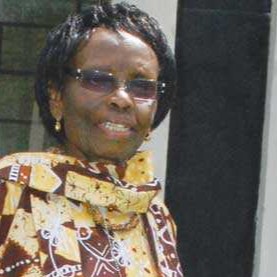Related Research Articles

Stephen Henry Lewis is a Canadian politician, public speaker, broadcaster, and diplomat. He was the leader of the social democratic Ontario New Democratic Party for most of the 1970s.

Sook-Yin Lee is a Canadian broadcaster, musician, film director, actress and multimedia artist. She is a former MuchMusic VJ and a former radio host on CBC Radio. She has appeared in films, notably in the John Cameron Mitchell movie Shortbus.
Christie Marie Blatchford was a Canadian newspaper columnist, journalist and broadcaster. She published four non-fiction books.

Abdurrazack "Zackie" Achmat is a South African activist and film director. He is a co-founder the Treatment Action Campaign and known worldwide for his activism on behalf of people living with HIV and AIDS in South Africa. He currently serves as board member and co-director of Ndifuna Ukwazi, an organisation which aims to build and support social justice organisations and leaders, and is the chairperson of Equal Education.
Daryn A. Kagan is an American broadcast journalist, formerly a news anchor for CNN.
Jan Wong is a Canadian academic, journalist, and writer. Wong worked for The Globe and Mail, serving as Beijing correspondent from 1988 to 1994, when she returned to write from Canada. She is the daughter of Montreal businessman Bill Wong, founder of Bill Wong's buffet in 1963, and earlier of the House of Wong which was the city's first Chinese restaurant to open outside Chinatown.

Beverley Joan "Bev" Oda is a retired Canadian politician. She was a member of the House of Commons of Canada, as well as the first Japanese-Canadian MP and cabinet minister in Canadian history. She represented the riding of Durham for the Conservative Party of Canada. She was appointed Minister of Canadian Heritage and Status of Women on February 6, 2006. She was appointed Minister for International Cooperation on August 14, 2007. On July 3, 2012, Oda announced she was resigning her seat in the House of Commons effective at the end of the month following public controversy about her spending habits; she was dropped from Cabinet the following day.

Stephanie Graham "Stevie" Cameron,, is a Canadian investigative journalist and author.
John Zaritsky was a Canadian documentarian/filmmaker. His work has been broadcast in 35 countries and screened at more than 40 film festivals around the world; in 1983, his film Just Another Missing Kid won the Academy Award for Best Documentary Feature.

Jeanne Beker, is a Canadian television personality, fashion editor, and author.
Billie Livingston is a Canadian novelist, short story writer, essayist, and poet. Born in Hamilton, Ontario, Livingston grew up in Toronto and Vancouver, British Columbia. She lives in Vancouver.
Lucie Edwards is a Canadian diplomat, who worked in the Department of Foreign Affairs, Trade and Development from 1976 to 2009, as the high commissioner to India, South Africa, Kenya and permanent representative to the United Nations Environmental program. She founded the Global Issues Bureau and served as assistant deputy minister for Corporate Services in Ottawa.

28 Stories of AIDS in Africa is a 2007 non-fiction book by Canadian journalist and author Stephanie Nolen. It tells 28 stories of people who have worked tackling HIV/AIDS in healthcare, as advocates, and people who have been diagnosed as HIV positive and their family members.

Human rights in Rwanda have been violated on a grand scale. The greatest violation is the Rwandan genocide of Tutsi in 1994. The post-genocide government is also responsible for grave violations of human rights.
Mellissa Veronica Fung is a Canadian journalist with CBC News, appearing regularly as a field correspondent on The National.
Elizabeth Neuffer was an American journalist who specialized in covering war crimes, human rights abuses, and post-conflict societies. She died at the age of 46 in a car accident while covering the Iraq War.

The Stephen Lewis Foundation (SLF) is a non-governmental organization that assists mostly AIDS- and HIV-related grassroots projects in Africa.
Ric Esther Bienstock is a Canadian documentary filmmaker best known for her investigative documentaries. She was born in Montreal, Quebec and studied at Vanier College and McGill University. She has produced and directed an eclectic array of films from investigative social issue documentaries like Sex Slaves, an investigation into the trafficking of women from former Soviet Bloc Countries into the global sex trade and Ebola: Inside an Outbreak which took viewers to ground zero of the Ebola outbreak in Zaire - to lighter fare such as Penn & Teller’s Magic and Mystery Tour.

Sudha Varghese, also known as Sister Sudha, is a former religious sister and social worker in India who has devoted herself to the Musahar, the Dalit of Bihar and Uttar Pradesh, one of the Scheduled Castes and who are considered the "untouchables". She resides and works in Jamsaut, a village in Patna district. She is sometimes called didi, which means "elder sister".

Elizabeth Ngugi was a Kenyan Professor of Community Health at the University of Nairobi, and a nurse by trade. Her major contributions to her university's program was her research and work with local prostitutes to prevent HIV/AIDS transmission. Ngugi is described as the first Kenyan nurse to become a professor.
References
- ↑ "Stephanie Nolen Named Global Health Reporter". The New York Times Company. July 1, 2021. Retrieved August 23, 2021.
- ↑ [ dead link ]
- ↑ "The Canada Council for the Arts - Finalists - Nonfiction - 2007 Governor General's Literary Awards". Archived from the original on October 4, 2012. Retrieved May 7, 2012.
- ↑ "Project Leadership | Museum of AIDS in Africa". Archived from the original on July 10, 2012. Retrieved May 7, 2012.
- ↑ "Stephanie Nolen named Atkinson Fellow, Star's public editor next chair of Canadian Journalism Foundation". thestar.com. June 11, 2020. Retrieved August 12, 2020.
- ↑ "Amnesty International Canada awards two Globe journalists for human rights coverage on Colombia and China" . Retrieved December 18, 2018.
- ↑ "Globe reporter wins fifth Amnesty International Media Award" . Retrieved December 18, 2018.
- ↑ "Amnesty International Canada's 2011 Media Awards | News Release". Amnesty.ca. Archived from the original on April 9, 2012. Retrieved May 5, 2012.
- ↑ "Amnesty International Canada || News Release". Archived from the original on June 4, 2012. Retrieved May 7, 2012.
- 1 2 "Amnesty International Canada || Resource Centre". Amnesty.ca. Archived from the original on June 5, 2012. Retrieved May 5, 2012.
- ↑ "From the archives: Behind Barrick's Pascua-Lama meltdown in the Atacama desert" . Retrieved February 24, 2019– via The Globe and Mail.
- ↑ "Walrus wins big at National Magazine Awards" . Retrieved February 24, 2019– via The Globe and Mail.
- ↑ Jones, Deborah (October 29, 2007). "Nolen wins PEN Courage award". JSource. Retrieved February 24, 2019.
- ↑ "University of King's College Names 2009 Honorary Degree Recipients | University of King's College". Ukings.ca. May 14, 2009. Archived from the original on December 1, 2010. Retrieved May 5, 2012.
- ↑ "May 31: U of G, CME to Honour Simon Cooper | CME". Uoguelph.ca. Archived from the original on April 3, 2012. Retrieved May 5, 2012.
- ↑ "NOV. 2014 Honorary Degree Recipients". uvic.ca. Retrieved July 9, 2015.
- ↑ Nolen, Stephanie (November 18, 2020). "Opinion | I Am Living in a Covid-Free World Just a Few Hundred Miles From Manhattan". The New York Times. ISSN 0362-4331 . Retrieved February 22, 2023.
- ↑ Nolan, Stephanie, ed. (2002). Shakespeare's Face: Unraveling the Legend and History of Shakespeare's Mysterious Portrait (first ed.). Toronto: Alfred A. Knopf. ISBN 978-0-307-36651-1.